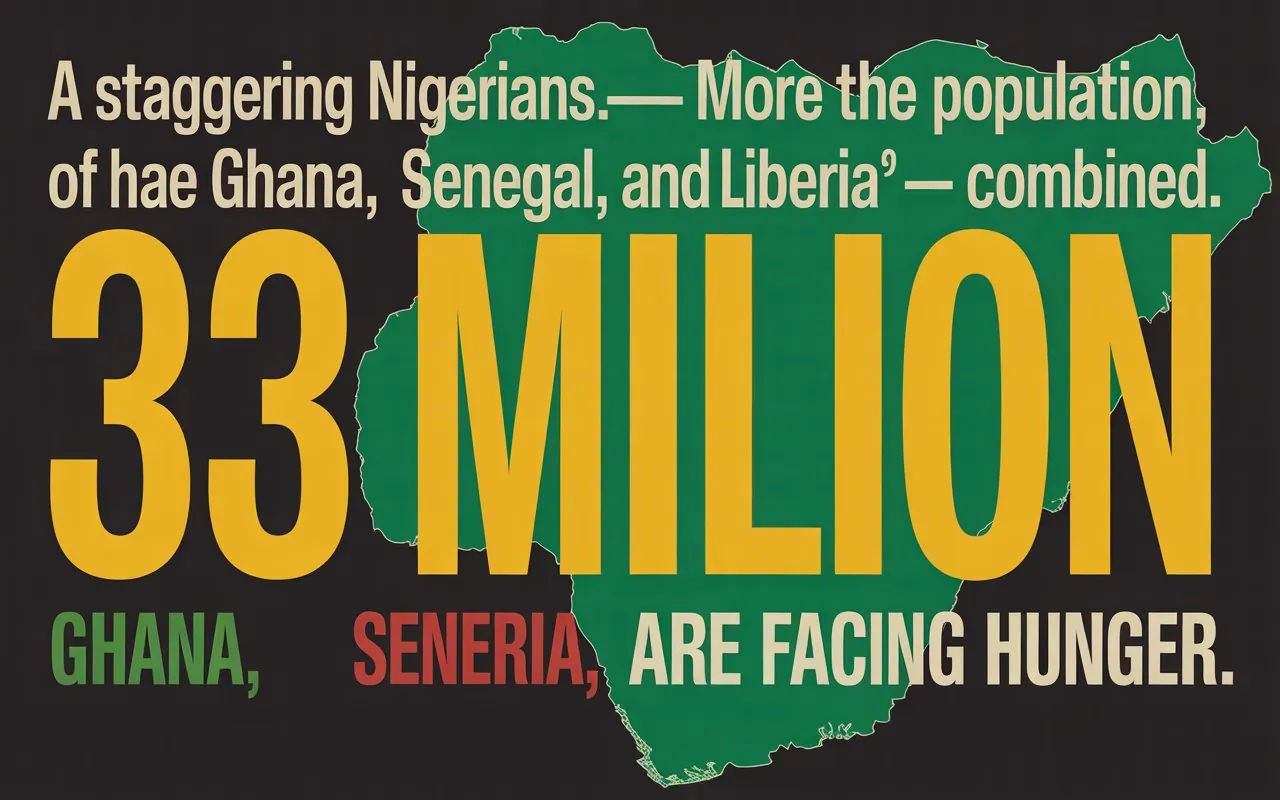Nigeria is currently facing a serious food crisis that is affecting millions of families across the country. The combination of insecurity and climate change has made it difficult for people to get enough food to eat, raising concerns about the future of the nation’s food supply.
In many parts of Nigeria, farmers are scared to go to their farms because of frequent attacks, kidnappings, and violence. This has led to a sharp drop in food production, as many farmlands are abandoned or destroyed.
At the same time, unpredictable weather patterns caused by climate change—such as heavy floods and long dry spells—are damaging crops and making farming even harder.
Food prices have risen quickly, making it tough for ordinary families to afford basic meals. Children and mothers are suffering the most, with more cases of malnutrition being reported in many communities.
Experts warn that if urgent action is not taken, the food crisis could get even worse. They are calling on the government and international organizations to help farmers return to their land and to support those who are most affected by hunger.
A Nation on the Brink

Nigeria is staring down the barrel of a monumental food emergency. By August 2025, a staggering 33 million Nigerians—more than the populations of Ghana, Senegal, and Liberia combined—
are projected to face acute food insecurity. This marks a sharp rise from the 25 million already struggling to find their next meal today.
What’s Driving the Crisis?
Escalating insecurity is at the heart of the problem. Armed conflict, banditry, and kidnappings have transformed fertile farmlands into battlegrounds.
Farmers in states like Benue, Borno, and Plateau are being forced off their land, with Amnesty International reporting over 1,300 deaths in Plateau State alone between December 2023 and February 2024.
“All these communities constantly being attacked… are all farming communities. So I think it is a deliberate move to starve the nation,” said Husseini Dodo, a farmer from Niger State.
Relentless climate change is compounding the crisis. Nigeria’s 2024 rainy season brought devastation, not relief. Floods destroyed over 1.5 million hectares of cropland, while erratic rainfall and expanding desertification have left once-productive fields barren. The country has experienced its worst floods in 30 years, displacing 1.2 million people and killing over 300.
Economic hardship and soaring prices are making matters worse. With food inflation at 40.7%—the highest in 25 years—basic staples like rice and beans are now out of reach for millions.
Over half of Nigerians now live below the poverty line, up from 40.1% in 2018 to 56% today.
The Human Toll

The crisis is especially dire for the young. An estimated 5.4 million children and 800,000 pregnant or breastfeeding women face acute malnutrition, with 1.8 million children at risk of severe acute malnutrition and in need of urgent treatment. “I am so worried about how food insecurity is hitting children in our community.
With banditry everywhere, farmers cannot go to farms so food is getting harder to find. Lots of children go to bed hungry, and malnutrition is going up,” shared Hajara, a 15-year-old campaigner from Katsina.
In the northeast and northwest, millions have been uprooted from their homes, disrupting education, healthcare, and local economies.
Urgent Calls for Action
The United Nations, FAO, UNICEF, and WFP have issued joint appeals for immediate, life-saving support to avert a full-scale disaster.
“We are facing unprecedented challenges affecting livelihoods and food and nutrition security globally, regionally, and nationally,” said Kouacou Koffy, FAO Country Representative to Nigeria and ECOWAS.
Experts stress that only a massive, coordinated response—combining emergency aid, investment in climate resilience, and restoration of security—can stem the tide of hunger and restore hope to millions.
Quote of the Day
“What worries us most is the speed of deterioration over the past year, the scale—in terms of number of people at risk, the geographic scope of food insecurity, and the very real risk of a significant worsening in the coming months.”
— Chi Lael, WFP Spokesperson
Nigeria’s food crisis is a growing emergency that needs immediate attention. By tackling insecurity and finding solutions to climate change, the country can help its people get the food they need and secure a better future for everyone. Without quick action, millions more may face hunger in the months ahead.
